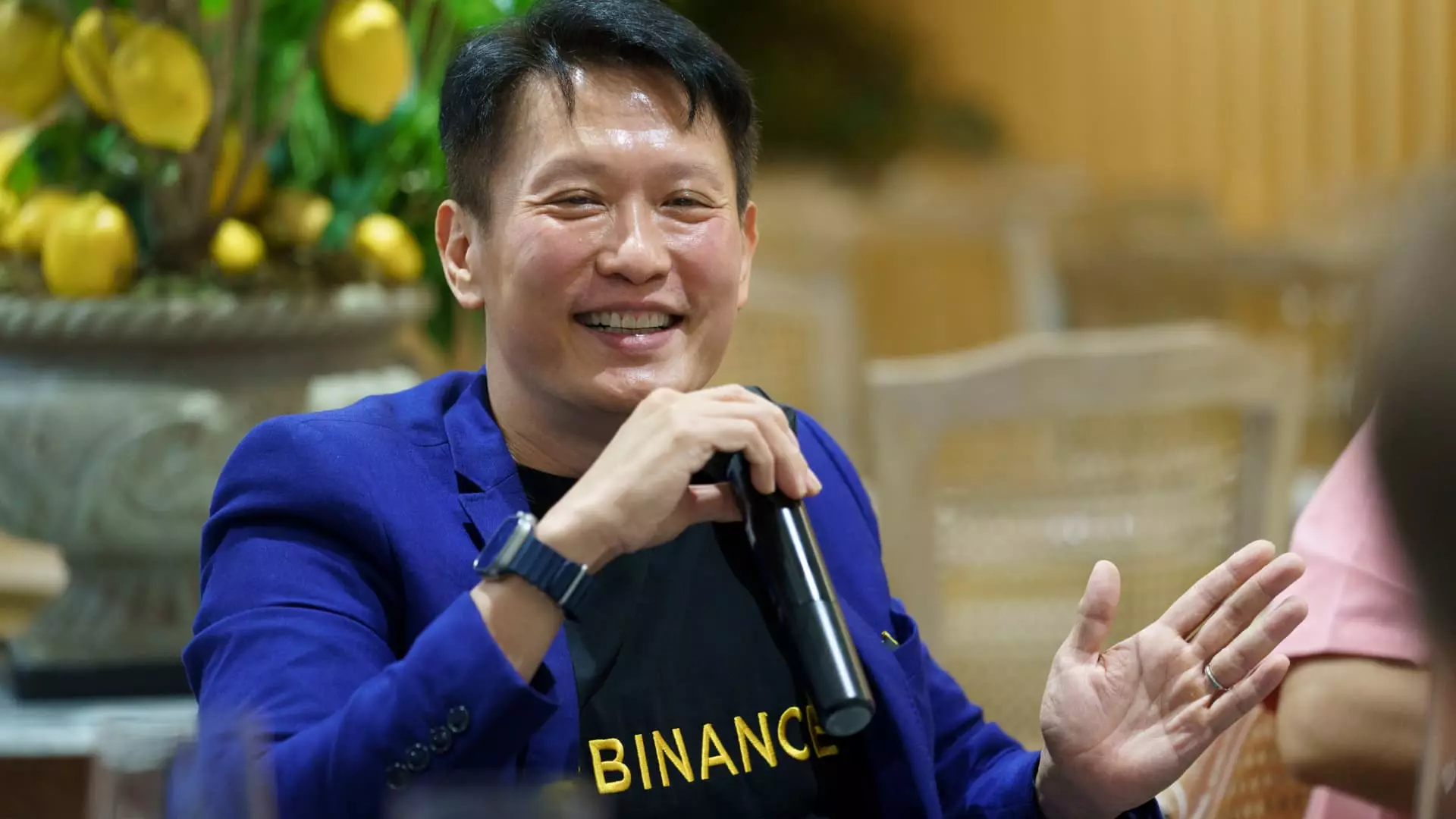Richard Teng, the newly appointed CEO of Binance, articulates a sentiment that reverberates through much of the cryptocurrency industry today: the political climate is shifting dramatically in their favor. Describing the Trump administration as a “fantastic” reset for the sector, Teng highlights the stark contrast between the previous regulatory landscape and the current, more favorable environment. Just under two years ago, Binance was regarded as a pariah, beleaguered by regulatory scrutiny and legal challenges. Yet, as Teng notes, the exchange now finds itself in a realm where it can potentially regain its footing in Washington, a not-so-great irony for an industry initially built on the ideals of decentralization and independence.
The landscape of the American political world is complex, but for Binance, it appears to be aligning in their favor. Teng’s discussion of their turnaround is compelling, especially considering the once-dismal status the crypto exchange held. This pivotal transformation symbolizes a broader trend in the crypto market, which is adapting rapidly to newfound political support. This isn’t merely a tactical advantage; it’s an indication that the powers that be have begun to recognize and embrace the potential of digital currencies.
From Regulatory Lightning Rod to Mainstream Ally
The transformation of Binance from a target of regulatory disdain to a hub of potential political alliances is particularly noteworthy. Under the Trump administration’s second term, the dialogue around digital assets has evolved, fostering an atmosphere where partnerships between crypto companies and influential networks are not just possible but encouraged. In earlier months, conversations around potential investments by the Trump family into Binance indicate a possible endorsement of crypto’s legitimacy by traditional power factions. This bears witness to a strategic pivot—where once Binance faced existential threats from the government, they now stand to benefit from a growing, favorable dialogue.
Yet, it’s crucial to remember the shadow of the past. Binance’s previous unyielding stance against regulatory compliance has led them to a series of billion-dollar penalties and lawsuits, including a staggering $4.3 billion settlement. This history of evasion doesn’t merely reside in the past; it hangs heavily over the company as they attempt to rebrand and redefine themselves. Teng admits that the company has seen a substantial increase in compliance personnel, now nearly 25% of their workforce, illustrating a willingness to mend relations with regulators. This sincerity and commitment could be pivotal for their future.
The Complex Dance of Compliance and Expansion
It’s an era of rapid growth for Binance, with user numbers ballooning from 170 million to approximately 265 million in just a year. Teng touts this expansion while discussing the pro-crypto policies of the administration, asserting that they have benefited substantially from this evolving landscape. However, beneath the optimism lies a complicated tableau of ongoing legal challenges, including the fraught situation with the U.S. Securities and Exchange Commission (SEC). The current pause in proceedings indicates the SEC’s tacit acceptance of the shifting political winds, potentially allowing Binance to navigate a less obstructive future.
However, as the saying goes, every coin has two sides. The recent plight of Binance’s compliance team members in Nigeria serves as a sobering reminder that the road to regulatory reconciliation is fraught with obstacles. Here, two Binance executives faced imprisonment on allegations of non-compliance with local tax duties, illustrating how inconsistent regulatory environments can complicate even the best-laid plans. Still, Teng maintains that Binance’s approach has shifted to foster cooperation with governments worldwide.
A Future Bridged Between Crypto and AI
Investing in modernization, Teng asserts that Binance is embracing artificial intelligence extensively. This intersection of cutting-edge technology and financial innovation is likely to serve as a cornerstone for maximizing efficiency and security. Recently, Binance finalized a significant $2 billion investment deal with Emirati state-owned MGX, potentially serving as a pivotal moment in bridging the gap between AI and crypto—an endeavor that could redefine how these sectors interact and function.
With a firm grip on over 40% of global market share, Binance’s position within the industry remains robust. The growth of products like cryptocurrency exchange-traded funds (ETFs) suggests that traditional financial markets are drawing nearer to cryptocurrencies, creating an on-ramp for new users. The perception of ETFs as gateways into crypto trading follows a logical progression; as institutional interest grows, so too does the potential for mass adoption.
The Path Forward: Challenges and Opportunities
Despite the current upswing, Teng acknowledges multiple pressure points that require incessant attention. Security, compliance, product innovation, and potential mergers and acquisitions are all front and center in their strategic planning. By cultivating a platform that prioritizes compliance while fostering innovative solutions, Binance can bolster user trust and maintain its competitive edge.
This alignment of Binance’s growth strategy with emerging political and regulatory trends marks an exciting chapter for the crypto exchange. Should they manage to successfully navigate their past while embracing a future that integrates with traditional financial systems, the implications for crypto as a market and technological advancement could be tremendous. The very existence of platforms like Binance may become a linchpin for the future landscape of finance, provided they continue to adapt and respond to the ever-evolving political narrative.

